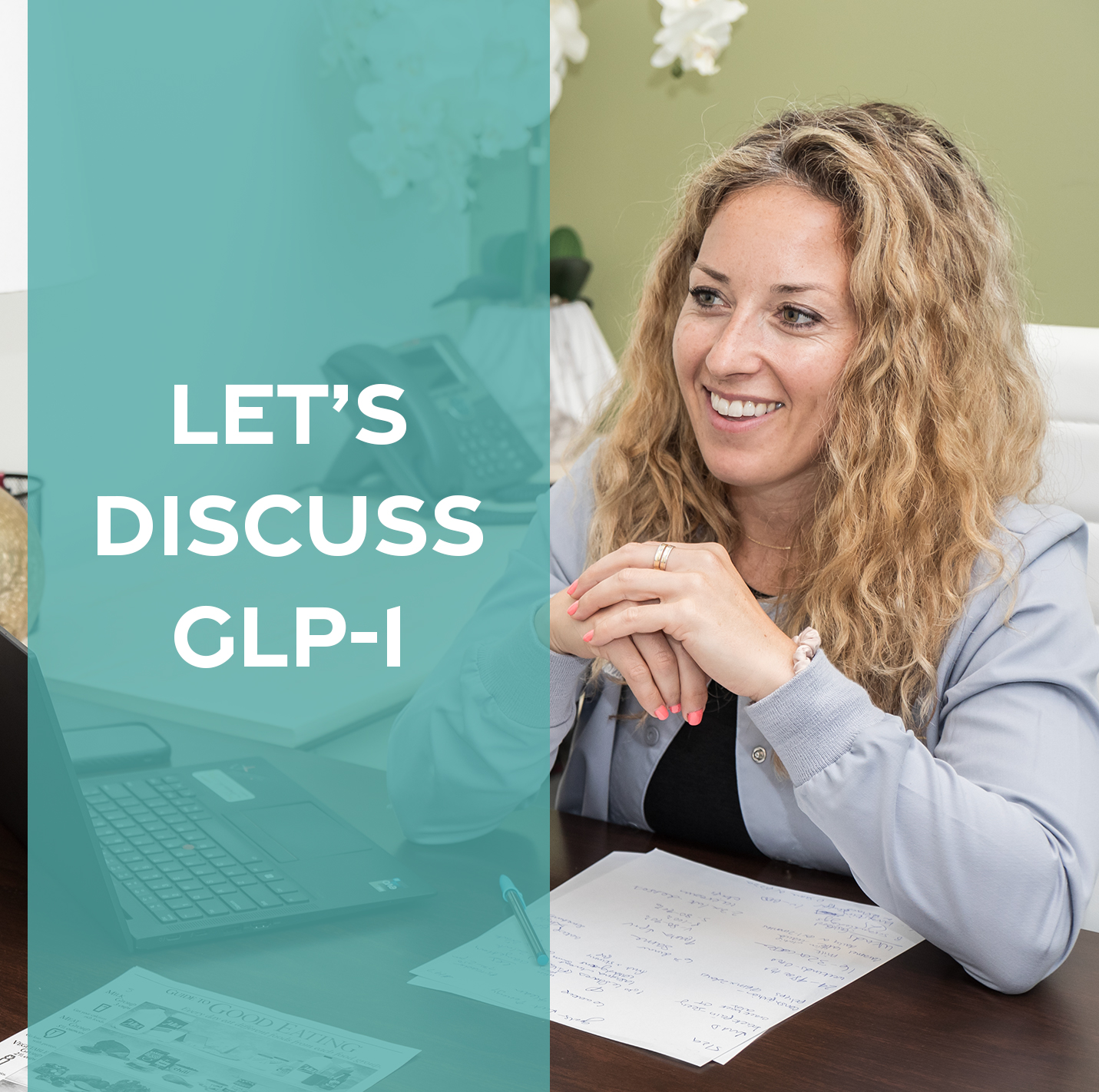Written by: Brenda Borba, RDN
If you recently started taking Ozempic (semaglutide) or another GLP-1 receptor agonist, you might be wondering: What now? Whether you’re using it for weight loss, managing type 2 diabetes or both, it’s important to understand the next step when starting a medication like Ozempic. Ozempic is gaining attention for its effectiveness, but like any treatment, it’s important to know how to manage your health while on it.
We’ve spoken to several doctors regarding GLP-1 receptors and we’re all in agreement that this should not be taken alone—lifestyle changes need to happen! We understand that this is not easy, and change does not happen overnight. We want people to feel that Absolute Nutrition Counseling is a safe space for you to work on habit and behavioral change with your dietitian and treatment team. When going on any GLP-1 medications, there are many factors that are necessary to assess that contribute to your health. These can include psychological, physical, and social determinants. Our dietitians conduct a thorough assessment, creating individualized goals and interventions that are unique to your health journey.
Medications like Ozempic are a tool, not a solution. They can significantly aid in mitigating immediate issues, such as reducing appetite or “food noise,” allowing individuals to focus on healthier eating habits and lifestyle changes. However, relying solely on medication without addressing underlying behaviors and lifestyles can lead to problems over time. We understand and empathize with the reasons for going on a GLP-1 medication, especially when a majority of the reason is to avoid these overwhelming factors and not having to juggle it all. That’s why we’re here—we want to ease the burden of feeling like you need to do this alone, because you don’t! Let us assist you to do this in a more sustainable way that keeps the weight off and gets you working on lifestyle changes. We’re here to open up the conversation around GLP-1 medications and give you the full picture—we want to educate individuals about potential risks associated with GLP-1 medications.
We notice that for a lot of individuals on GLP-1 medication can go hours on end without eating throughout the day. We’re here to remind you that even though one of the intentions with this medication is to work on portion control, we still need a certain amount of food to nourish the body to live. There’s a certain amount of nutrients that we need to provide our bodies through food in order to survive—remember food is energy! We need to be consuming enough calories, drinking enough water, and getting enough nutrients to have enough energy to do our daily tasks. And when we talk about daily tasks, we’re talking about the body’s daily tasks, which includes heart function, lungs, skeletal muscle and brain function. Concerns such as dehydration, muscle wasting, bone loss, and malnutrition are serious and put our bodies at a higher risk of developing these conditions when on a GLP-1 medication. This is why it’s so important to do so with adequate nutrition and hydration, as well as regular monitoring of health markers. Connecting with your dietitian to create balanced meal plans and exercise routines can mitigate these risks.
We’re here to help you navigate your health journey in a more effective and sustainable way with long-term strategies for when you’re finally off this medication. Connect with us here to start your healthy journey today!

